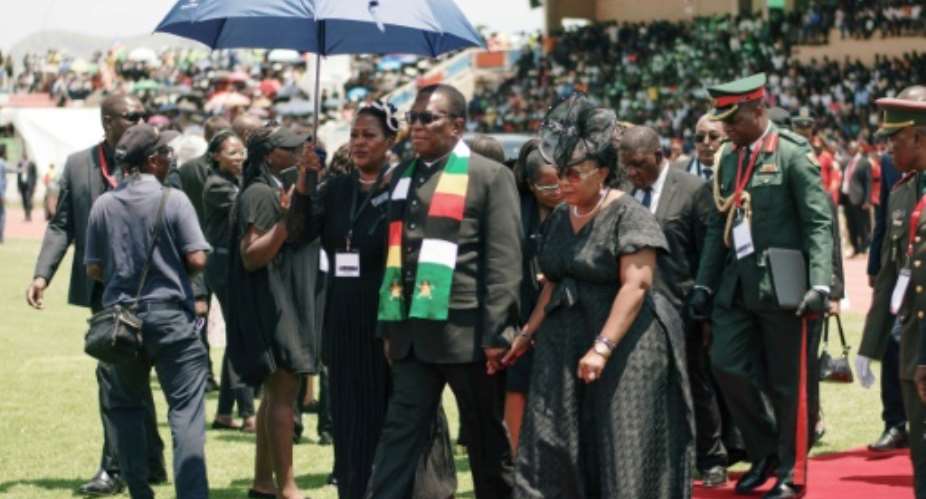The United States on Monday imposed sanctions on Zimbabwean President Emmerson Mnangagwa and other senior leaders, denouncing what it said was a campaign of rights abuses and corruption.
The sanctions, which will block any US-based property and block any unofficial travel to the United states, replace a broader, two-decade-old sanctions program against Zimbabwe.
"The changes we are making today are intended to make clear what has always been true: our sanctions are not intended to target the people of Zimbabwe," Deputy Treasury Secretary Wally Adeyemo said.
"We are refocusing our sanctions on clear and specific targets: President Mnangagwa's criminal network of government officials and businesspeople who are most responsible for corruption or human rights abuse against the people of Zimbabwe," he said.
Secretary of State Antony Blinken called the new measures were part of a "stronger, more targeted sanctions policy" on Zimbabwe as he voiced concern over "serious cases of corruption and human rights abuse."
"Key individuals, including members of the government of Zimbabwe, bear responsibility for these actions, including the looting of government coffers that robs Zimbabweans of public resources," Blinken said in a statement.
"Multiple cases of abductions, physical abuse, and unlawful killing have left citizens living in fear."
Mnangagwa, whose party has been in power for more than four decades, was declared the winner of a new term in an election in August that international observers said fell short of democratic standards.
He is the second consecutive Zimbabwean leader to face US sanctions following veteran president Robert Mugabe.
Hopes of a thaw briefly surfaced after Mnangagwa pushed Mugabe out of power in 2017, but Western powers and rights groups say that the new leadership has also clamped down on the opposition and protests.
President Joe Biden in a declaration on Monday ended an earlier sanctions program on Zimbabwe imposed in 2003 under George W. Bush, who had advocated for a broader global push of sanctions on the country under Mugabe.





 Western North been sidelined for far too long; address our needs before 2024 ele...
Western North been sidelined for far too long; address our needs before 2024 ele...
 Effutu: 'Stop eating at night and take care of your health' — Afenyo Markin advi...
Effutu: 'Stop eating at night and take care of your health' — Afenyo Markin advi...
 Akufo-Addo's desperate attempt to disrupt Yagbonwura's 1st year anniversary cele...
Akufo-Addo's desperate attempt to disrupt Yagbonwura's 1st year anniversary cele...
 Armed robbers attack, rob Sethi Brothers Ghana Limited in Tema
Armed robbers attack, rob Sethi Brothers Ghana Limited in Tema
 SML deal: We commend Manasseh for holding gov't to account, Akufo-Addo for not s...
SML deal: We commend Manasseh for holding gov't to account, Akufo-Addo for not s...
 Our recall invocation is in good faith to consider three key issues – Majority
Our recall invocation is in good faith to consider three key issues – Majority
 You’re inviting bad luck upon yourself if you use Indian hair — Spiritualist war...
You’re inviting bad luck upon yourself if you use Indian hair — Spiritualist war...
 Ejisu by-election: Police questions Kwadaso MP, two others over bribery allegati...
Ejisu by-election: Police questions Kwadaso MP, two others over bribery allegati...
 Nana Kwame Bediako is Nkrumah’s reincarnate; he’ll be president if he appoints N...
Nana Kwame Bediako is Nkrumah’s reincarnate; he’ll be president if he appoints N...
 Dumsor: Mahama gave us ‘dum, dum, dum’ but we are now in the era of ‘dum sie sie...
Dumsor: Mahama gave us ‘dum, dum, dum’ but we are now in the era of ‘dum sie sie...
